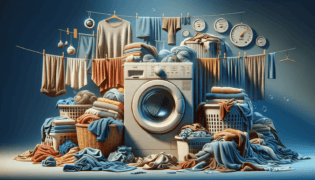

Several factors can lead to a refrigerator not cooling properly, including issues with the condenser coils, evaporator fan motor, start relay, thermostat, or a lack of refrigerant. These problems can stem from dirt accumulation, wear and tear, or electrical failures. Understanding these common causes can help pinpoint and resolve cooling issues efficiently.
Quick summary
Dust and debris can accumulate on the condenser coils located typically at the back or beneath the refrigerator. This buildup can insulate the coils, preventing them from releasing heat and consequently affecting the cooling efficiency. Cleaning these coils regularly is a straightforward fix that restores proper function.
The evaporator fan plays a crucial role by circulating cool air from the evaporator coils throughout the refrigerator and freezer compartments. If this fan motor fails, the fridge can’t distribute cold air effectively, leading to a rise in temperature. Replacing the motor is often the solution to this problem.
Your refrigerator’s compressor, which is vital for the cooling process, relies on the start relay for power. A defective start relay might not kickstart the compressor, causing the refrigerator to stop cooling. Testing and, if necessary, replacing the start relay can resolve this issue.
The thermostat controls the temperature by monitoring the interior climate and signalling the compressor to start or stop. Incorrect settings or a malfunctioning thermostat can prevent your refrigerator from cooling properly. Adjusting the thermostat or replacing a faulty unit can rectify cooling issues.
Refrigerants are essential for absorbing heat and maintaining the refrigerator’s cool temperature. A leak in the system can lead to a refrigerant shortage, hindering the fridge’s ability to cool. Detecting and repairing leaks, followed by refilling the refrigerant, is crucial for restoring cooling functionality.
Maintenance is key to preventing your refrigerator from stopping its cooling function. Regularly cleaning the condenser coils and ensuring that your fridge is not overloaded can help maintain optimal performance. At Setting King, we advise consulting with a professional if you suspect your refrigerator has a refrigerant leak or if you’re unable to resolve the cooling issue independently. Professionals can provide a definitive diagnosis and safe repairs, ensuring your fridge returns to its optimal cooling capacity.
Addressing these common causes promptly can prevent spoilage of food and ensure your refrigerator runs efficiently for years to come. Trust in Setting King to guide you through troubleshooting and adequately maintain your appliance for peak performance.